How to protect yourself from scams
How to protect yourself from scams
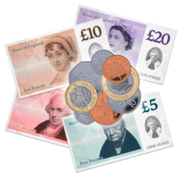
A scam is when someone tries to take your money by pretending to help you, or by offering you something which they are not going to give you.

If someone pretends to help you, they might ask you for information which can help them to try to take your money.
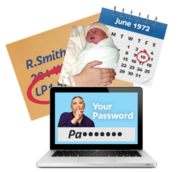
They might ask for your:
- name
- date of birth
- address
- bank account details
- card details
- passwords
- passcodes

It can be difficult to tell if something is a scam, or if it is real.

If you stop and think before you share information or pay money, it might help you to work out if something is a scam.
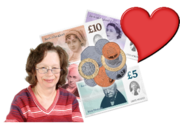
There are lots of different types of scams. This
easy read
 Easy Read is a way of making written information easier to understand. Pictures are usually added next to the writing.
is about impersonation scams and romance scams.
Easy Read is a way of making written information easier to understand. Pictures are usually added next to the writing.
is about impersonation scams and romance scams.
Impersonation Scams
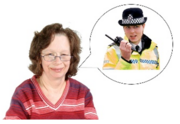
An impersonation is when someone pretends to be someone else.
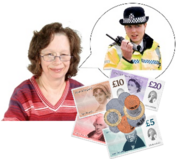
An impersonation scam is when someone pretends to be someone you think you can trust so they can try to take your money.
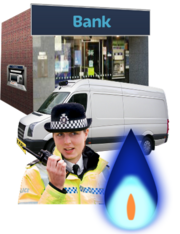
They might pretend to be:
- your bank
- the police
- a delivery company
- a gas, electric, phone or water company
- a government department like HMRC or DWP

HMRC is the department which works out how much
tax
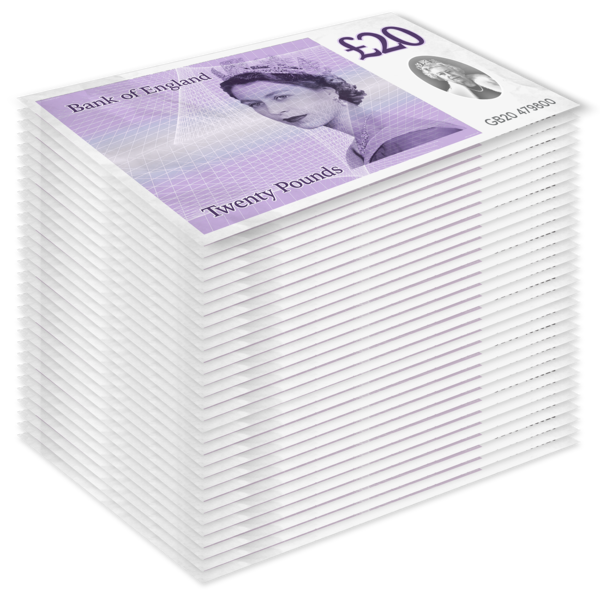 Tax is the money that pays for things like schools, hospitals and the police. There are different types of taxes like
income tax
Tax is the money that pays for things like schools, hospitals and the police. There are different types of taxes like
income tax
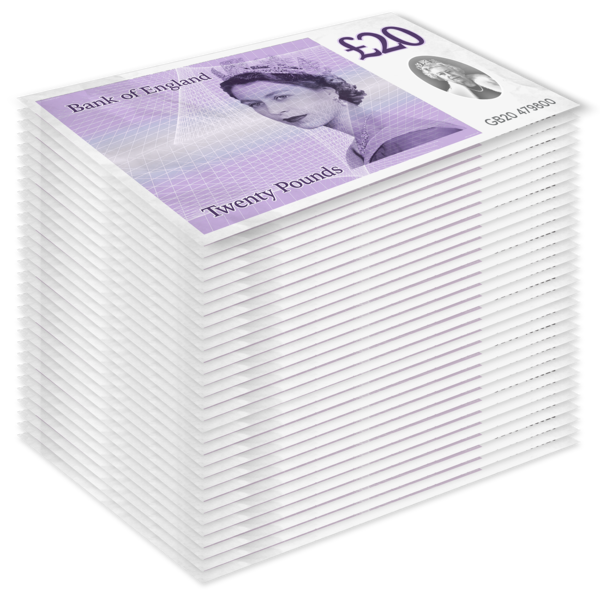 Income tax is the money that is taken out of the money you earn every month. It helps to pay for things we all need like hospitals and schools.
,
VAT
Income tax is the money that is taken out of the money you earn every month. It helps to pay for things we all need like hospitals and schools.
,
VAT
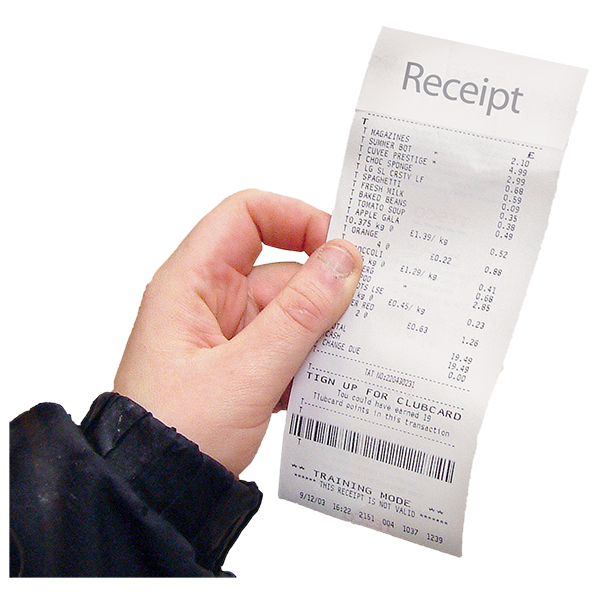 VAT is also called Value Added Tax. VAT is the extra money you pay when you buy things. The money goes to
the government
VAT is also called Value Added Tax. VAT is the extra money you pay when you buy things. The money goes to
the government
 The Government are the people who run the country. The Government decide how much tax people should pay and how things like the National Health Service (NHS) should work.
to pay for things like schools and hospitals.
and
council tax
The Government are the people who run the country. The Government decide how much tax people should pay and how things like the National Health Service (NHS) should work.
to pay for things like schools and hospitals.
and
council tax
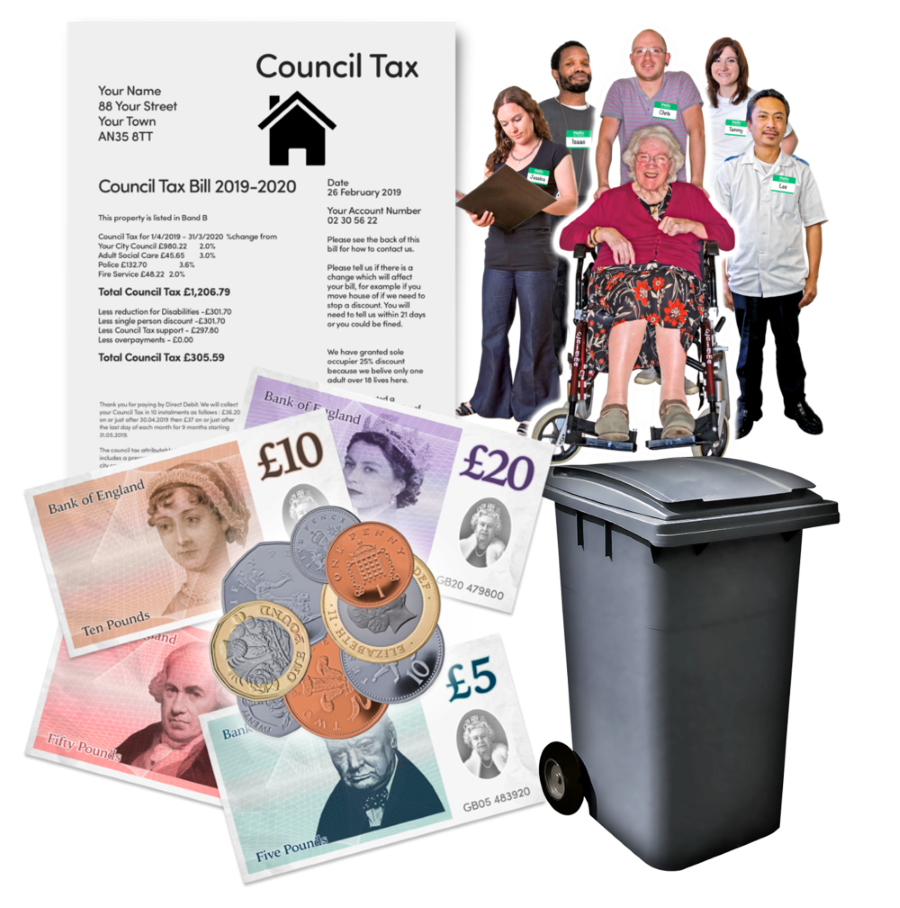 Council Tax is the money that people pay to the council. It helps to pay for things like social care (support for people), parks and dustbin collection.
.
you have to pay.
Council Tax is the money that people pay to the council. It helps to pay for things like social care (support for people), parks and dustbin collection.
.
you have to pay.
DWP is the department which helps people with pensions and benefits.
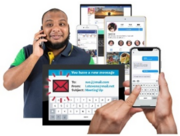
They might contact you by phone, text, email or social media.

They will try to get you to give them money or to give them information which could help them to try to take your money.

Remember:
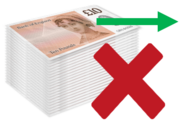
- Your bank will never ask you to transfer your money to a ‘safe’ account.
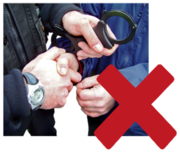
- HMRC will never say they might arrest you.
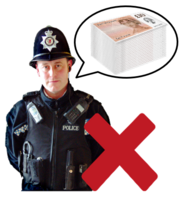
- The police will never ask you to take money out of your account to help them.

- Only criminals will try to rush and panic you into taking money out of your account, or moving it to a different account.

- Only criminals will try to rush or panic you into sharing information about yourself.

- If you get a message or a call that you did not know you were going to get
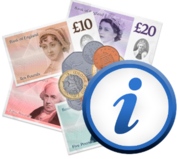
and someone asks you for money, or information which could help them to take your money,

call the
organisation
 An organisation are a group of people who work together.
back on a number you can trust.
An organisation are a group of people who work together.
back on a number you can trust.
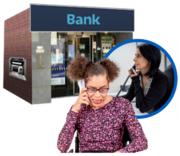
For example, if someone says they are from your bank, say you will call them back.
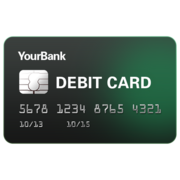
You can find the phone number for your bank on your bank card.
Romance scams

A romance is a relationship between 2 people who are in love with each other.

A romance scam is when someone tries to get you to fall in love with them, or pretends they are in love with you

so they can try to take your money.

They might make a fake profile on dating apps or on social media and try to start a friendship or a relationship with you.

They might look up information about you online to find out what you like.

They might make up stories to make you feel sorry for them, or to make you feel special.

They might start to say that they love you after a few messages.
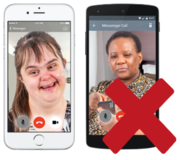
But they do not video call, or meet you in real life.
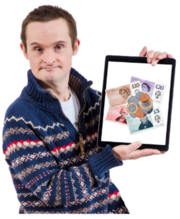
They ask you to send them money.

They might say they need the money to pay to come and visit you.

Or to help to pay for medical help for themselves or someone they know.

When you meet someone online, it is difficult to know if someone is who they say they are.

Remember:
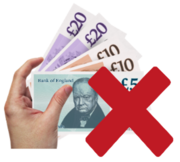
- Do not send money to a person you have never met in real life.
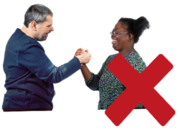
- Be careful of people who will not meet you in real life, even if they say why they can not meet you.

- Only accept friend requests from people you know and trust.

- Speak to family and friends if you are not sure if someone is who they say they are.

If someone asks you for information or money:

- Stop
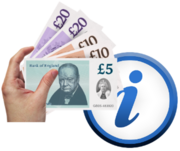
Stop before you share information or pay money.

- Think

Think ‘Is this a scam, or is it real?’

You might also want to ask someone you trust if they think it is a scam or if it is real.

- Get help

If you think you may have given information or money to someone as part of a scam,

contact your bank as soon as you can.

Their phone number should be on their
website
 A website is a page you can go to on the internet like Google or YouTube.
, or on your bank card.
A website is a page you can go to on the internet like Google or YouTube.
, or on your bank card.
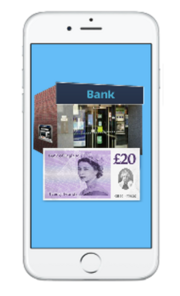
You can also contact your bank about scams via your banking app.

If you are in England, Wales or Northern Ireland, report it to Action Fraud at www.actionfraud.police.uk or by phoning 0300 123 2040.
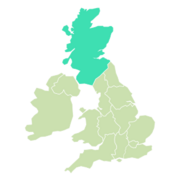
If you are in Scotland, you should report it to Police Scotland by phoning 101.
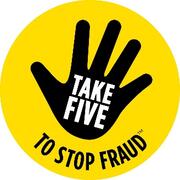
Find out more
Take Five is a
campaign
 A campaign is when people work together to try to change something.
which gives advice about how to try to make sure no-one tricks you and takes your money.
A campaign is when people work together to try to change something.
which gives advice about how to try to make sure no-one tricks you and takes your money.

You can find advice about the Take Five campaign online at www.takefive-stopfraud.org.uk

If you have a
learning disability
 A learning disability is to do with the way someone's brain works. It makes it harder for someone to learn, understand or do things.
or care for someone with a learning disability and want to find out more about scams or the Take Five campaign, you can call Mencap‘s Learning Disability Helpline on 0808 808 1111.
A learning disability is to do with the way someone's brain works. It makes it harder for someone to learn, understand or do things.
or care for someone with a learning disability and want to find out more about scams or the Take Five campaign, you can call Mencap‘s Learning Disability Helpline on 0808 808 1111.

This easy read was co-written by Mencap and UK Finance.